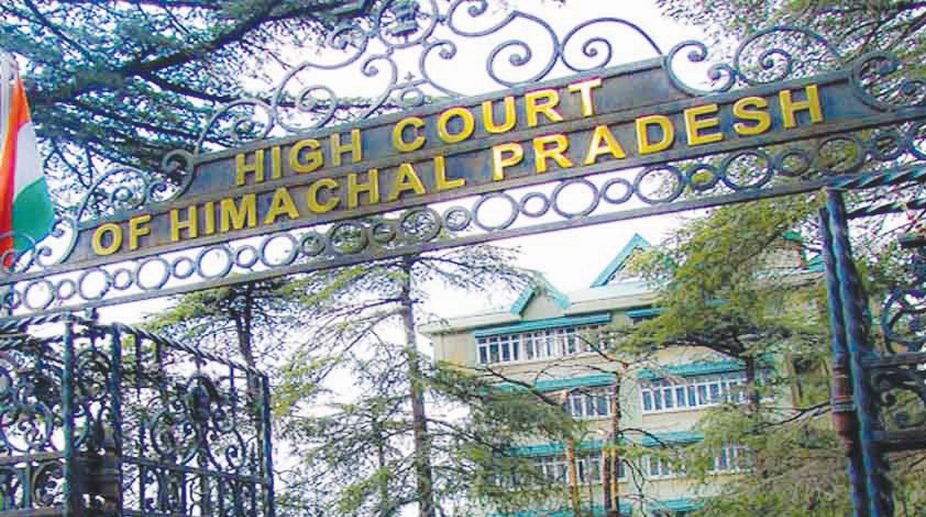The Himachal Pradesh High Court while dismissing the petition said that every female employee and male employee whether appointed on regular basis, contractual basis, ad hoc basis, tenure/temporary basis have a fundamental right to reasonable duration of maternity leave as well as paternity leave, child care leave (CCL) to promote motherhood and child care under Article 21 Constitution of India read with Article 42 of the Constitution of India.
The Division Bench of Justice Tarlok Singh Chauhan and Justice Virender Singh passed this order while hearing a petition filed by the State of H.P & Ors.
The Court said that, Right to life under Article 21 of the Constitution of India includes the right to mother and to become a mother is the most natural phenomena in the life of a woman. Therefore, whatever is needed to facilitate the birth of her child to a woman, who is in service, the employer has to be considerate and sympathetic towards her, must realise the physical difficulties, which a working woman faced in performing duties at the work place while carrying a baby in the womb or while rearing up the child after birth.
Aggrieved by the order passed by the H.P Administrative Tribunal whereby the respondent was granted the benefit of deemed maternity leave and thereafter consequential benefit of conferment of work- charge status on completion of 8 years service, the employer- State has filed the petition for the grant of following substantive reliefs:-
(I) That the order dated 21.11.2018 passed by the State Administrative Tribunal in the Original Application (D) No 322 of 2018 may kindly be quashed and set aside.
(ii) That the medical certificate of the respondent submitted after 20 years may not be considered for the period of maternity leave as continuous service.
It is also not in dispute that in the year 1996, respondent was carrying a child in her womb, which she delivered on 30.05.1996 and after availing maternity leave w.e.f 01.06.1996 to 31.08.1996 i.e only 3 months, the respondent assumed duties and it is only on account of pregnancy and subsequent delivery that the respondent could only put in 156 days as against the minimum requirement of 240 days in a year.
Aggrieved by the order passed by the Tribunal, the State has filed the petition.
Ramakant Sharma, Additional Advocate General, has vehemently argued that since there is no provision in the department for granting maternity leave to the female daily wage workers in the year 1996, therefore, the Tribunal could not have directed the petitioners to grant said relief.
The Court stated that, India is a signatory to various international covenants and treaties. The Universal Declaration on Human Rights adopted by the United Nations on 10.12.1948, set in motion the universal thinking that human rights are supreme and ought to be preserved at all costs. These were followed by series of conventions, which reflect on the broad international consensus on important issues of global concern.
The Court further said that,
It was after years of deliberations at National and International level, the right of a woman employee for maternity leave has now been established as supreme by the enactment of the Maternity Benefit Act, 1961. India otherwise was required to make labour laws in conformity with the recommendations made by the International Labour Organization (ILO) read with Article 42 of the Constitution of India. According to Article 42 of the Constitution of India, “the State is required to make provision for securing just and humane conditions of work and for maternity relief”.
The object of ILO to conduct the survey was to promote motherhood and child care as well as gender equality. Every female employee and male employee whether appointed on regular basis, contractual basis, ad hoc basis, tenure/temporary basis have a fundamental right to reasonable duration of maternity leave as well as paternity leave, child care leave (CCL) to promote motherhood and child care under Article 21 Constitution of India read with Article 42 of the Constitution of India.
The Court noted that,
In Municipal Corporation of Delhi vs Female Workers (Muster Roll) & Anr (2000) 3 SCC 224 (supra), the Supreme Court held that the provisions of Maternity Benefit Act, 1961 entitled maternity leave even to women engaged on casual basis or on muster roll basis daily wage and not only those in regular employment.
It is further held that the provisions of the Act in this regard are wholly in consonance with the Directive Principles of the State Policy as contained in Articles 39, 42 and 43 of the Constitution of India.
“The object of maternity leave is to protect the dignity of motherhood by providing full and healthy maintenance to the woman and her child, maternity leave is intended to achieve the social justice to women, motherhood and childhood, both require special attention.
The respondent in the case was a daily wage woman employee at the time of advance pregnancy could not have been compelled to undertake hard labour, as it would have been detrimental to not only to her health and safety but also to the child health, safety and growth. The maternity leave is a fundamental human right of the respondent, which could not have been denied. Therefore, clearly the action of the petitioner is violative of Articles 29 and 39D of the Constitution of India.
In view of the aforesaid discussion and for the reasons stated above, we find no merit in the petition”, the Court observed while dismissing the petition.


